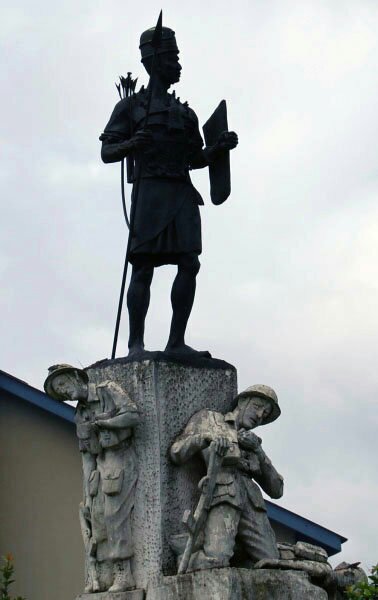Benin city, where the Oba lives (n’oba ye), was the centre of the Benin Empire at the height of its glory. It even stretched to Dahomey, present day Benin Republic. Benin City is the center of Edo as it was the point of exodus of all the Edoid ethnic groups.
Benin was burnt to the ground when the Europeans invaded and the story of the Benin massacre is still told in history classes. One great event during this invasion is the last stand of Asoro n’Iyokuo (The warrior) in the battle for Sakponba.
When the battle was raging, Asoro singlehandedly held the invaders at bay for almost five days, defying the blazing superior weapons of the European invaders and cutting the enemies down, left and right. Asoro did not falter or miss a chance to deal out severe blows with his sword as he ploughed maniacally into the midst of the enemies. Asoro who was steeped completely in strong magic never lost a battle. His deadly poisonous arrows and his huge broad sword did not spare the enemy as they would not miss their targets. With devastating accuracy when he fought in the midst of the enemy groups, he would not hold back until the last man had bitten the dust at his feet.
There was only one condition Asoro had to obey in order to stay alive. This was that he would never look back over his shoulders whilst battle raged on. Asoro fought valiantly even as his fellow brave soldiers were cut down. Suddenly he felt as though his quiver of arrows which he hung from one of his shoulders had been snatched away. By now he was soaked in the blood of white men. He looked left and right but could not find it. As the pressure mounted on him, he was seized with fear and looked back over his shoulder. Who would he see standing there other than Ofoe? Ofoe, the messenger of death.
In the battle for Sakponba, the British army was routed and the commander killed. His head was brought back to Benin, where it hung from a tree.

Today, a statue of Asoro n’Iyokuo stands at the very place where he took his last stand, a reminder of his deep love for the Edo nation and the sacrifice he gave to defend it.